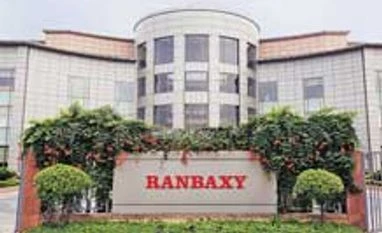The fight between Japanese pharmaceutical company Daiichi Sankyo and the erstwhile owners of Ranbaxy, Malvinder Singh and Shivinder Singh has entered a new phase. The Japanese company has accused the two of concealing and misrepresenting facts at the time of its $2.4 billion purchase of the company in 2008.
The Economic Times report says that the accusation was made in arbitration case filed in Singapore. Daiichi has sought compensation for the losses made in reaching a settlement that Ranbaxy was forced to reach with the US Department of Justice over accusations of faked test data.
Interestingly, the report says that the Singh brothers have not indemnified Daiichi of any eventualities prior to 2008. Further, the wording of the share purchase agreement (SPA) as reported seems to be one-sided and favours the Singh brothers.
More From This Section
It says and we directly quote from the news report “To the knowledge of the company, there is no event or situation that has not been disclosed to the buyer (Daiichi) and its representative since the accounts date and which could have a material adverse effect. For the purpose of this, the ‘knowledge of the company’ shall mean the knowledge of founder 1 (Malvinder Mohan Singh) without any obligation of founder 1 to make any due enquiry.”
Clearly, either the Japanese company did not understand the language or they did not have a strong team representing them. It is clear they are on a weak wicket. A proper due-diligence could have saved Daiichi money and embarrassment.
But what does all this mean to the shareholders of the company or better still for the consumers.
More than the money involved, it is the reputation of the company that has taken a beating. On at least 15 of Ranbaxy’s new drug applications, the USFDA found over 1,600 data errors. These are bioequivalence figures which are needed to prove a generic is at least an 80% chemical match of the branded drug – either did not exist or were fabricated.
This has put Ranbaxy on a sticky wicket. Ex-employees in the US have been quoted in the US media (CBS interviewed Dr. Kathy Spreen who was hired by Ranbaxy in 2004 to help Ranbaxy comply with FDA regulation) as saying they found data fabrication way back in 2004 and even when it was brought to the notice of Malvinder Singh, nothing was done about it.
While Ranbaxy has ‘made peace’ with the FDA by paying a fine of $500 million, few doctors would like to recommend the company’s products in the US. More than the one-time money that the company can expect from the Singh brothers, it is the loss of face and business in the US which is worrisome for the shareholders.
As for consumers, they have more reasons to be worried. It was was not the USFDA which caught Ranbaxy in the act, but it was a whistle blower (Dinesh Thakur) from within Ranbaxy who had the courage to stand up and be counted. USFDA neither has the resources or the time to check the voluminous data it has to handle.
This leaves all of us at the mercy of these pharmaceutical companies as far as quality and efficacy of the drug is concerned. In Ranbaxy’s case, data of the drug was fabricated.This means it was not thoroughly checked for its effectiveness. As far as the consumer is concerned, he has no way of finding if the drug is working or not.
In cases of fatal diseases like cancer it would be difficult to know if the drug is working or has cancer progressed, to arrive at the efficacy of the drug. In case of some of the other anti-infectives or pain relievers, a consumer and the doctor can detect that the product is not working and can change to a new product.
But this is not the solution, checks and balances need to be in place for every product that enters the market. A few months back doctors in Srinagar went on a strike because the drugs entering the state from nearby ‘tax-holiday’ manufacturing units were proving to be ineffective. Proactive doctors helped changed the situation, while drug authorities were busy clearing new drug applications.
The problem is not restricted to India. One of the biggest global pharmaceutical companies, Roche has been accused of misleading research to countries worldwide over the antiviral drug Tamiflu. US government had stockpiled the drug based on 10 research papers, which were later found out to have been sponsored by the Swiss company.
Given the money involved in pharmaceutical, a stronger and resourceful drug authority is the need of the hour. Imposing a fine is too light a punishment for these cash-rich companies.
While US FDA still has stringent rules for drugs entering the US and the manufacturing process required to produce it, Indian FDA leave a lot to be desired. It took a USFDA team to notice urine spilling in open drains next to Wockhardt’s manufacturing facility. The Indian guys are used to such scenes and did not find it objectionable. We have already digested such drugs.
)